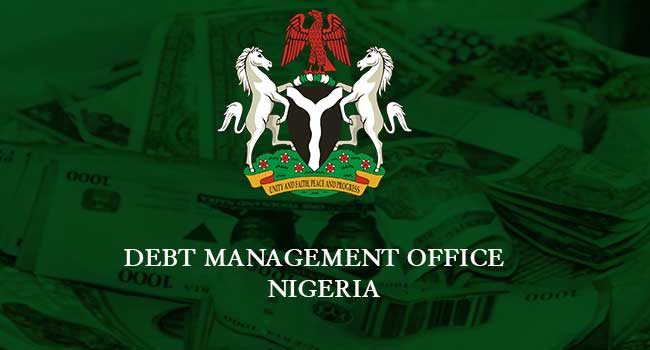
Nigeria’s debt-to-Gross Domestic Product (GD) ratio crossed 50 percent for the first time ever last week while debt servicing is set to surpass the country’s revenue.
The Debt Management Office (DMO) published the country’s latest public debt figures recently.
According to the DMO, Nigeria now has a public debt portfolio of N121 trillion, consisting of domestic debt of N65.6 trillion and a foreign debt portfolio of $42.1 billion (N56 trillion).
With Nigeria’s external debt rising to around $45 billion amidst investors flocking out of the country, the Chief Executive of CFG Advisory, Tilewa Adebayo, stressed the urgent need for remedial legislation as well as an overhaul of the trade, industrialisation and investment policy of the country.
Speaking at the bi-monthly forum of the Finance Correspondents Association of Nigeria (FICAN) in Lagos last week, Adebayo noted that while the country has received positive outlook ratings from credit rating agencies, the Caa1 rating of Moody’s Investor Services still classifies the country in the range of junk bonds.
He noted that “the unchecked fiscal expenditure and the unauthorised Ways and Means of financing, now over 30 times the limit at N30 trillion, remains a key risk to Nigeria’s economic recovery out of stagflation to sustained growth in 2024.”
Noting that debt servicing obligations of the country are set to surpass revenue, he noted that “all financial circuit breakers have been breached and there is need for remedial legislation.” Adding that the senate does not have the right to securitise the Ways and Means, he said “doing that is illegal.”
As of December 2023, Nigeria’s total GDP was N229.9 trillion in nominal terms, though it grew by only 2.74 percent in real terms. This suggests that the country’s debt-to-GDP ratio is now above 50 percent for the first time. In the first quarter of 2024, Nigeria recorded a nominal GDP of N58.5 trillion, up from N51.2 trillion in the corresponding period in 2023.
However, in the second and third quarters of 2023, the nominal GDP figures were N52.1 trillion and N60.6 trillion, respectively. The fourth quarter GDP rose to N65.9 trillion, making the trailing four-quarters GDP total N237.5 trillion.
Based on the 2023 GDP figure of N229.9 trillion, Nigeria’s debt-to-GDP ratio is 52.9 percent, marking the first time the country has reached such a high debt-to-GDP figure. Using the trailing four-quarter GDP figure of N237.5 trillion, the country’s debt-to-GDP ratio also stands at 51.2 percent.
Nigeria has often viewed its ‘low’ debt-to-GDP ratio as a sign of the country’s economic resilience, suggesting there was more room to expand its borrowing capacity. For example, as of 2023, Ghana had a debt-to-GDP ratio of about 84.9 percent while South Africa’s ratio stood at 72.2 percent.
Kenya and Egypt had ratios of 70.1 percent and 95.8 percent, respectively. While these countries have significantly higher debt-to-GDP ratios compared to Nigeria, the challenge has always been Nigeria’s ability to meet its debt service obligations due to its high debt service-to-revenue ratio.
Now, with Nigeria’s debt-to-GDP ratio surpassing 50 percent and continuing to rise, the country has limited room to further expand its borrowing capacity while grappling with current economic challenges.
Nigeria’s debt profile has risen over the last eight years as the country faced a string of fiscal challenges brought about by low crude oil proceeds amid rising budgetary expenditure. For example, under the President Muhammadu Buhari administration, public debt rose from N12.6 trillion in 2015 to N97.3 trillion in 2023.
Between December 2023 and March 2024, public debt in Naira terms has risen by as much as N24.3 trillion. However, the Debt Management Office (DMO) explained the increase, noting that the N24.33 trillion increase in the total debt was a result of a combination of fresh borrowing and naira devaluation.
The DMO further clarified that Nigeria’s fresh borrowing was N7.71 trillion in the first quarter of 2024. The fresh borrowing includes N2.81 trillion as part of the new domestic borrowing of N6.06 trillion provided in the 2024 Appropriation Act and N4.90 trillion as part of the securitisation of the N7.3 trillion Ways and Means Advances approved by the National Assembly.
ALSO READ: ICPC refutes recruitment announcement as fake
Source: